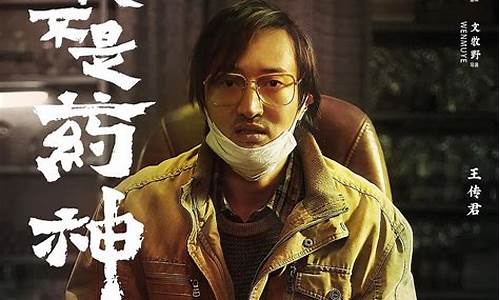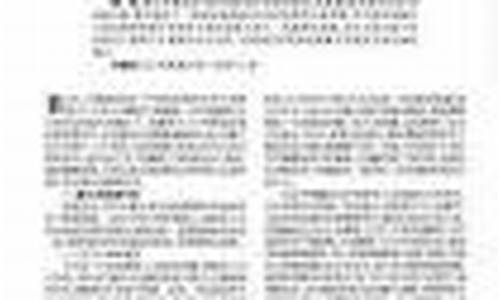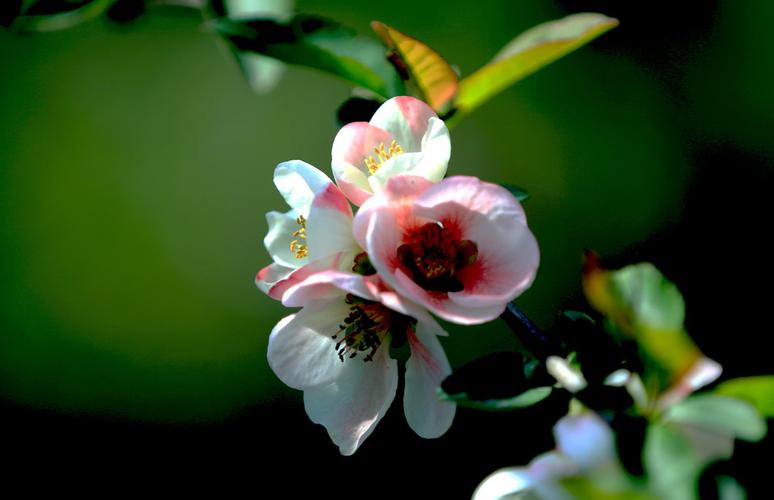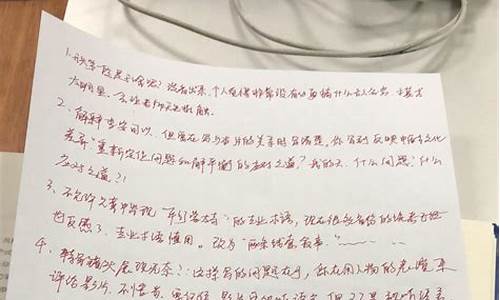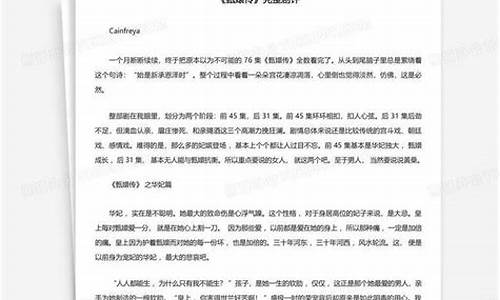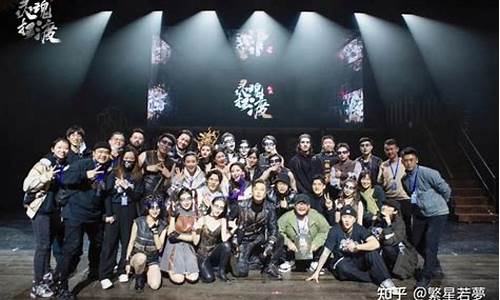卧虎藏龙影评怎么写最好_卧虎藏龙影评好听的题目
1.卧虎藏龙的影评,英语的,50词左右,谢了,9点前给我吧,急用
2.**《卧虎藏龙》观后感
3.《卧虎藏龙》算得上是经典之作吗?
4.急需《卧虎藏龙》的专业影评
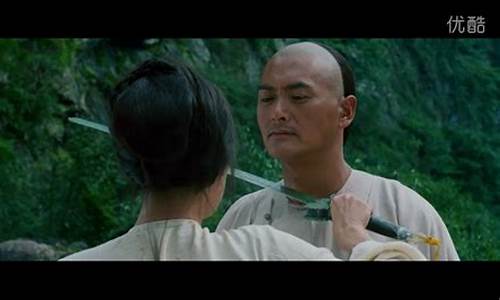
home | current issue | archives | search | about us | contact | links
A 19-year-old newcomer and a middle-aged veteran
steal the show from two legends of Hong Kong cinema
BY GARY MORRIS
Director Ang Lee would not be an obvious first choice to direct a Hong Kong martial arts film, even at a time when the genre is practically dead and thus ripe for resurrection by a highly regarded craftsman like Lee. His previous films — Sense and Sensibility, The Ice Storm are two — are careful, thoughtful works but also slow and stately to the point of torpor, traits that seem inimical to the whole HK aesthetic as seen in the work of megastars like Jackie Chan and Jet Li; producers and directors like Tsui Hark and John Woo; and films that cover a vast range of styles from the genderbending histrionics of the Swordsman series (starring the queen of HK androgyny, Brigitte Lin) to the homoerotic bloodbaths of Woo (Hard-Boiled, The Killer) to the sweet everyman epics of Jackie Chan.
Lee’s new film, Crouching Tiger, Hidden Dragon, is being marketed as both a loving homage and a redemption of the alleged excesses of the HK martial arts movie, a questionable roach since excess — in the larger-than-life characters, stylized violence, and dazzling shifts of tone — is a primary lure of these films. In Lee’s words, "People tend to look down on the genre. Some may he thought it strange that I could just drop what I normally do and make something like a B-movie. And as I was doing it, there was no escape. I had to bring in drama, I had to bring in women, I had to bring in beauty and whatever I feel added quality to it. It became an Ang Lee movie."
The good news is that the attitude behind such patronizing statements — drama, women, and beauty are hardly rare in HK films — is only partly in evidence in this "Ang Lee movie," in the film’s tedious, cliché romantic sequences. When Lee (or was it a gifted second-unit director?) focuses on the martial-arts sequences, the effect is breathtaking indeed and deserving of all the accolades the film is receiving.
Crouching Tiger, Hidden Dragon is based on a pre-World War II novel about characters who (in spite of Lee’s protests of originality) will be quite familiar to fans of HK’s golden age films. Li Mu Bai (Chow Yun Fat) is a legendary martial artist whose attempts to find enlightenment he left him disillusioned. He gives away his famous sword, the Green Destiny, to signal a move into a new, nonviolent life. His courier is Shu Lien (Michelle Yeoh), another well-known fighter who’s been pining away for him for years. Shu Lien becomes friendly with the aristocratic young Jen (Zhang Ziyi), who is secretly a superior swordswoman, the lover of the desert bandit Lo (Chang Chen), and a disciple of the vicious middle-aged female criminal Jade Fox (Cheng Pei Pei). From this setup, the film details the theft of the Green Destiny, the romantic and political intrigues that ensue, and the major characters’ life quests: Jen for love and power, Li Mui Bai for peace, Shu Lien for Li Mui Bai, Jade Fox for revenge against all men, and Lo for Jen.
The film has a muted, elegant look that works in its for to transport the viewer to its setting of ancient China, meticulously recreated. But this rich pictorialism has a down side: Lee seems to be so in love with his compositions and conceits that the film slows to a crawl in some sequences. A particular offender in this regard is a seemingly endless diversion in the desert, where the love affair between Lo the bandit and Jen the captured lady begins. Lee exploits the bleak beauty of this setting (shot in the Gobi desert and the Taklamakan Plateau north of Tibet) but eventually loses the viewer in the interminable love scenes.
://.brightlightsfilm/31/crouchingtiger.html
卧虎藏龙的影评,英语的,50词左右,谢了,9点前给我吧,急用
《卧虎藏龙》经典影评:
作为华语**的第一个也是目前唯一一个奥斯卡最佳外语片小金人,落在武侠类型片的头上实在是再适合不过。
《卧虎藏龙》或许可以算是华语影坛最顶尖的一群高手,联袂奉献的武侠巅峰之作。
李安导演,鲍德熹摄影,袁和平武指,叶锦添服设,谭盾配乐,加上马友友的演奏和一众演员的出色发挥,将儒家的淡雅冲和与道家的抱元守一在如诗般的画面中淋漓展示。
故事梗概
一代大侠李慕白(周润发饰)有退出江湖之意,托付红颜知己俞秀莲(杨紫琼饰)将青冥剑转交给贝勒爷(郎雄饰)收藏,不料当夜遭玉娇龙(章子怡)窃取。
俞秀莲暗中查访也大约知道是玉府**玉蛟龙所为,她想办法迫使玉蛟龙归还宝剑,免伤和气。
但李慕白发现了害死师傅的碧眼狐狸(郑佩佩饰)的踪迹,她隐匿于玉府并收玉蛟龙为弟子。而玉蛟龙欲以青冥剑来斩断阻碍罗小虎(张震饰)的枷锁,他们私定终身。
**《卧虎藏龙》观后感
A 19-year-old newcomer and a middle-aged veteran
steal the show from two legends of Hong Kong cinema
BY GARY MORRIS
Director Ang Lee would not be an obvious first choice to direct a Hong Kong martial arts film, even at a time when the genre is practically dead and thus ripe for resurrection by a highly regarded craftsman like Lee. His previous films — Sense and Sensibility, The Ice Storm are two — are careful, thoughtful works but also slow and stately to the point of torpor, traits that seem inimical to the whole HK aesthetic as seen in the work of megastars like Jackie Chan and Jet Li; producers and directors like Tsui Hark and John Woo; and films that cover a vast range of styles from the genderbending histrionics of the Swordsman series (starring the queen of HK androgyny, Brigitte Lin) to the homoerotic bloodbaths of Woo (Hard-Boiled, The Killer) to the sweet everyman epics of Jackie Chan.
Lee’s new film, Crouching Tiger, Hidden Dragon, is being marketed as both a loving homage and a redemption of the alleged excesses of the HK martial arts movie, a questionable roach since excess — in the larger-than-life characters, stylized violence, and dazzling shifts of tone — is a primary lure of these films. In Lee’s words, "People tend to look down on the genre. Some may he thought it strange that I could just drop what I normally do and make something like a B-movie. And as I was doing it, there was no escape. I had to bring in drama, I had to bring in women, I had to bring in beauty and whatever I feel added quality to it. It became an Ang Lee movie."
The good news is that the attitude behind such patronizing statements — drama, women, and beauty are hardly rare in HK films — is only partly in evidence in this "Ang Lee movie," in the film’s tedious, cliché romantic sequences. When Lee (or was it a gifted second-unit director?) focuses on the martial-arts sequences, the effect is breathtaking indeed and deserving of all the accolades the film is receiving.
Crouching Tiger, Hidden Dragon is based on a pre-World War II novel about characters who (in spite of Lee’s protests of originality) will be quite familiar to fans of HK’s golden age films. Li Mu Bai (Chow Yun Fat) is a legendary martial artist whose attempts to find enlightenment he left him disillusioned. He gives away his famous sword, the Green Destiny, to signal a move into a new, nonviolent life. His courier is Shu Lien (Michelle Yeoh), another well-known fighter who’s been pining away for him for years. Shu Lien becomes friendly with the aristocratic young Jen (Zhang Ziyi), who is secretly a superior swordswoman, the lover of the desert bandit Lo (Chang Chen), and a disciple of the vicious middle-aged female criminal Jade Fox (Cheng Pei Pei). From this setup, the film details the theft of the Green Destiny, the romantic and political intrigues that ensue, and the major characters’ life quests: Jen for love and power, Li Mui Bai for peace, Shu Lien for Li Mui Bai, Jade Fox for revenge against all men, and Lo for Jen.
The film has a muted, elegant look that works in its for to transport the viewer to its setting of ancient China, meticulously recreated. But this rich pictorialism has a down side: Lee seems to be so in love with his compositions and conceits that the film slows to a crawl in some sequences. A particular offender in this regard is a seemingly endless diversion in the desert, where the love affair between Lo the bandit and Jen the captured lady begins. Lee exploits the bleak beauty of this setting (shot in the Gobi desert and the Taklamakan Plateau north of Tibet) but eventually loses the viewer in the interminable love scenes.
摘自 : heenwinGWIN 的回答。
《卧虎藏龙》算得上是经典之作吗?
文 道道老
以前看过一次这部**了,当时因为听说华语**得了奥斯卡奖很激动,也很好奇,很想知道是个什么样的**能得此殊荣,便和同学一起去看了。说实在当时光记得是一场场打斗,特别是在竹子上晃晃悠悠地打斗,感觉很新鲜,觉得那些打斗很有美感,光顾得欣赏武功了,所以看完**印象也不是很深刻,没记住什么情节。
最近朋友想看这部**,我也就跟着凑热闹,又看了一次。却发现这次看了感觉完全不一样了,我认为有两个方面的原因,一是年纪大了,看**关注点不一样了;再就是过了这么多年,时代变化了。
影片写的是李慕白要退出江湖,让师妹将手中著名的宝剑送给贝勒爷,却没想到被盗,从而引出一系列江湖恩怨的故事。故事情节其实很简单。李导演主要在**中加强华人元素的表现。觉得李导演这一招非常好,因为从网上看到好多留学外面果人的文章发现,实际上歪果人对我们的文化和习俗以及生活很陌生。不了解就容易产生误解甚至敌意。李导演使大力气加入了华人元素,像武术打斗,以及道,气机之类,功夫到了一定境界,任何东西都可以成为剑;还有轻功。这些让那些歪果人大开眼界,对宣传我们的传统文化很有益处。
其中好多事情已经有好多影评中说明了。这部**据说不同的人看了会有不同的看法,这是导演的高明之处。看了这部**我想说一些我的看法。
第一个看法,好多人说李慕白对玉娇龙产生了暧昧感情,这个我是坚决反对。我感觉有些人特别多情(没有冒犯的意思,也不是表示贬义),看到李慕白非要追着王娇龙要收徒,就感觉李慕白喜欢她了。我感觉不是。原因如下:
第一,当年李慕白的师弟为了替李慕白挡了一下攻击,因此而死,师弟是秀莲的恋人,二人后来感情越来越深,互生情愫,却因师弟而觉得对不起师弟,一直压抑着情感,后来李慕白都要飞升了,却放不下秀莲又回来了。可见二人感情之深,也可见二人仁义信义,这样的李慕白怎么可能会与玉娇龙产生暧昧?还有人说秀莲也嫉妒玉娇龙云云,我没看出来。我看出来的是李慕白和秀莲两个人对一个武术好苗子的喜爱与珍惜,要知道江湖上出一个对武术有天赋的人是不容易的,甚至需要多年,这些在很多武侠里面都有提到。所以发现了一个武术好苗子是很惊喜的,也是很爱惜的。因此李慕白才一直追着她要收徒,他是想让他们的武当剑术发扬光大。他和秀莲才在玉娇龙一再犯错后还替她担当,都是出于对这个好苗子的爱护之心。所以才有后来李慕白对秀莲的坦白说希望今后退出江湖,和秀莲永远在一起。
其次就是,玉娇龙中了迷叠香后,有人说李慕白情欲动了,那也是瞎掰。李慕白是一下揽住她了,她那里是要跌倒好吗?然后李慕白就说她中了迷叠香,然后就给她治。而且这时秀莲来了,哪里看到有嫉妒的痕迹?他们两个很信任的好吧?这种江湖道义大家怎么会这么容易出这种小家子气呢?
第二个看法,有人评论说碧眼狐狸诉说当年李慕白的师傅不教她学武才害他性命,由此推断什么大男子主义,性别歧视之类。这里我不完全苟同。我的看法是:古代是性别歧视不,但在这里不是。为什么这么说呢,很好的例子嘛?秀莲就是徒弟,她是个女的。我认为不教她是因为别的原因。诸如天分不够。影片中都说了,王娇龙都超过了师父也就是碧眼狐狸,而且亲口说她师傅本事就这样了。可见她天赋确实是不够。古代对天赋是很在乎的。比方秀莲就是用刀,而李慕白用剑。学武是会根据各个人的特长来的。所以说碧眼狐狸不能学是性别歧视之类我不认同。
第三个看法,我认为对玉娇龙打击最大的是自己的师傅碧眼狐狸最后的行动。虽然玉娇龙知道师父不如自己,还怕她伤心隐瞒着她。可以看出她虽然很傲轿,初生牛犊不怕虎,天不怕地不怕,到处惹事,要横行江湖。然而她很在乎她师父的,她是个那种嘴硬心里热乎的人,所以前面看她师傅眼看被李慕白他们给杀了,冲上来冒着危险把她给救走了。可能她的做事方式不对,因为她在影片中简直是一个皮孩子,又冲动又惹事,但她挺在乎她师父的。没想到的是,最后她师傅却想要她的命,给她来一毒针暗器,要不是李慕白替她挡了一下,死的就是她了。最令她震惊得是她师傅的话:“徒儿不肖,我要的是玉娇龙的命,十年苦心,就是因为你一肚子的坏水,隐藏心决,让我苦练不成,而你却是剑艺精进,什么是毒?一个八岁的孩子就有这种心机,这就是毒。娇龙,我唯一的亲,我唯一的仇!”说完就死了。俗话说“最亲近的人伤自己最深。”这个就是典型写照。玉娇龙整天跟碧眼狐狸在一起,在她心里,师傅大概比父母的份量还重,听到这话她是彻底心碎了。她没想到自己的不经事伤师傅这么深。而且最后又害李慕白丢了性命,而且李慕白也是真心地教导她,她心里也明白的,只是嘴硬而已,那都是发自内心的内疚,所以才拼着命的去配药。当她拿着配好的药来到时,悲剧已经发生,也预示着她的彻底内心支柱的瓦解。当然也有看透江湖的成分在内,碧眼狐狸总是怂恿她去闯江湖,肯定不知灌输她多少江湖的美好,什么生气谁就可杀谁之类,经历这些事她终于明白,江湖并不是那么理想的。所以才有了最后的跳下深渊,那是心灵唯一的解脱。所以在跳下后才轻飘飘地像鸟儿,舒展开来。那是一种知道自己要解脱了的快感。
最后吐槽一下演员的发音。这里其实也不能算是毛病吧,毕竟当年技术还没这么好。演员的发音有的地方都很不容易听清楚,实力证明这些发音都是演员亲自读白的吧。可能由于现场庞大的原因,有的声音不是很清楚。不像现在,办法多的是,可以先对口形,然后再找人配音什么的,不会让声音这么的不清楚。这个应该算是时代的问题吧。
整部**拍得不错,给咱华人争了光,好**。
急需《卧虎藏龙》的专业影评
《卧虎藏龙》肯定能算得上经典之作,是李安为中国新**走向国际所打造的一座里程碑。
其实在上世纪末,中国**在国际的地位还算很高的,《霸王别姬》、《活着》、《秋菊打官司》、《红高粱》等等**在世界各大**节,拿奖简直拿到手软,但是这些**无疑都有一个通病:挖掘民族劣根性以讨巧西方影节评委,这些具有浓厚政治性、民族性的反思倾向**,虽然客观来讲确实足以称得上一部部艺术精品,但是长久看来并不利于我们中华文化的对外输出,甚至会导致世人眼中民族形象的固化、扭曲等问题。
《卧虎藏龙》则直接将故事背景扔到古代,重新将我们中国人热爱的武侠故事灌输以西方思想内核推出国际,获得巨大反响。难道各位真的以为让片中的人飞来飞去、炫酷地耍两下武功就足以成就这部**在奥斯卡得奖了吗?这你就想得太简单了。
其实要论及其中包含的“西方思想”内核,就要给大家介绍一个“俄狄浦斯情结”,这种思想的原型“俄狄浦斯王”的故事笔者在此就不给大家赘述了,各位可以粗浅地理解为由于世俗伦常的限制导致的无法抑制的命运悲剧,一般可以应用于“恋母”或“恋父”情结,所以这也可以叫作“俄狄浦斯情结”。
而在《卧虎藏龙》中,俞秀莲与李慕白之间,隐忍而深沉的爱情,便是这种情结的延展。他们两个人虽没有同门之谊,但俞秀莲丈夫意外丧生,李慕白答应好友要照顾友妻一生,结果最终到死,两个人都没有在一起。这种由于世俗伦常规条引发的命运悲剧,便是西方人唱诵了千百年的“俄狄浦斯情结”。
可以说,李安作为一个中国导演,首次将西方悲剧思想引入中国**,打破了国产片反思历史和时代、贬低形象的桎梏,首次将“中国武侠故事”以一种西方人能够理解的方式推向国际,从这种意义上来讲,它实在是中国影史上的一部经典之作。
几个人物,几条故事线。在我看来其他都略显次要,导演旨在表现不同等级功夫高手的不同思想哲学。从帮倒忙的入门级别大老粗,再到报母仇捕快父女,三到毒狐狸,四到娇龙,五到大姐,最后到顿悟级李慕白。他们的功夫和人生哲学思想境界成正比。
声明:本站所有文章资源内容,如无特殊说明或标注,均为采集网络资源。如若本站内容侵犯了原著者的合法权益,可联系本站删除。

